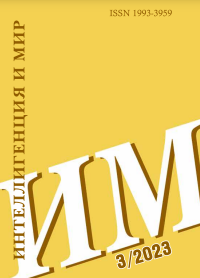Роль офицеров Корпуса охраны пограничья в культурно-просветительской и идеологической работе по полонизации военнослужащих и местного населения Западной Белоруссии Второй Польской Республики
The role of the officers of the Border Protection Corps in the cultural, educational and ideological work on the polonization of the military services and the local population of Western Belarus of Second Polish Republic
Author(s): Oleg V. TikhonovichSubject(s): Military history, Political history, Nationalism Studies, Pre-WW I & WW I (1900 -1919), Interwar Period (1920 - 1939), Ethnic Minorities Studies
Published by: Ивановский государственный университет
Keywords: Second Polish Republic; Western Belarus; Belarusian voivodeships; Border Protection Corps; Polish army; Polish officers; national policy; Belarusian national minority; polonization; denationalization;
Summary/Abstract: In November 1918, a new state-political formation appeared in Eastern Europe - the Second Polish Republic. The Polish nation got the opportunity to acquire its sovereignty thanks to those national liberation movements, whose representatives during the First World War sought the rights to reshape the Central-Eastern European region. This was supported by prominent representatives of the nationalist elites, among whom the leaders of the Polish intelligentsia occupied the first place, striving for clearly expressed territorial acquisitions not only of their native Polish lands, but also aiming at those distant Eastern spaces, the historical purpose of which belonged not to the representatives of the Polish nation, but to the East Slavic persons - Russians, Belarusians and Ukrainians. But the Polish ruling elite, under the leadership of J. Pilsudsky and R. Dmowski, achieved, following the results of the Riga Peace Treaty of 1921, the inclusion of the territories of Western Belarus and Western Ukraine into the Second Polish Republic, whose inhabitants were doomed not to integration, but to colonization, the components of which were Polonization, denationalization and revindication. To implement this national policy, the Border Protection Corps (KOP) was formed in 1924, whose officers in the interwar period were used by the central authorities in relation to the local population of the Belarusian provinces of Poland as executors of national enslavement. In this regard, in this article the author made an attempt to identify the role and degree of participation of the KOP officers in the practical implementation of those nationalist tendencies that in the 20-30s were introduced in Western Belarus and were an integral part of the national policy of the Polish state. And to achieve this goal, the author of the article used the key principles of scientific historical research - historicism and objectivity. As a result of the work done, the author comes to the following basic conclusions: 1) creation in the mid 20s the Border Protection Corps in the Eastern Voivodeships of the Republic of Poland was a purposeful internal national policy of the Polish authorities, the constituent elements of which were - Polonization, denationalization and revindication; 2) during the 20s officers of the KOP were involved by the central and local authorities in order to establish economic and military infrastructure facilities on the territory of Belarusian voivodships, which became partially or completely unusable as a result of military conflicts and social explosions of 1914-1925; 3) military formations of the KOP, led by officers, on the territory of Western Belarus during the interwar period destroyed not only manifestations of social protest of local residents, but also eradicated the cultural and spiritual self-consciousness of the Belarusian national minority.
Journal: Интеллигенция и мир
- Issue Year: 2023
- Issue No: 3
- Page Range: 136-156
- Page Count: 21
- Language: Russian

